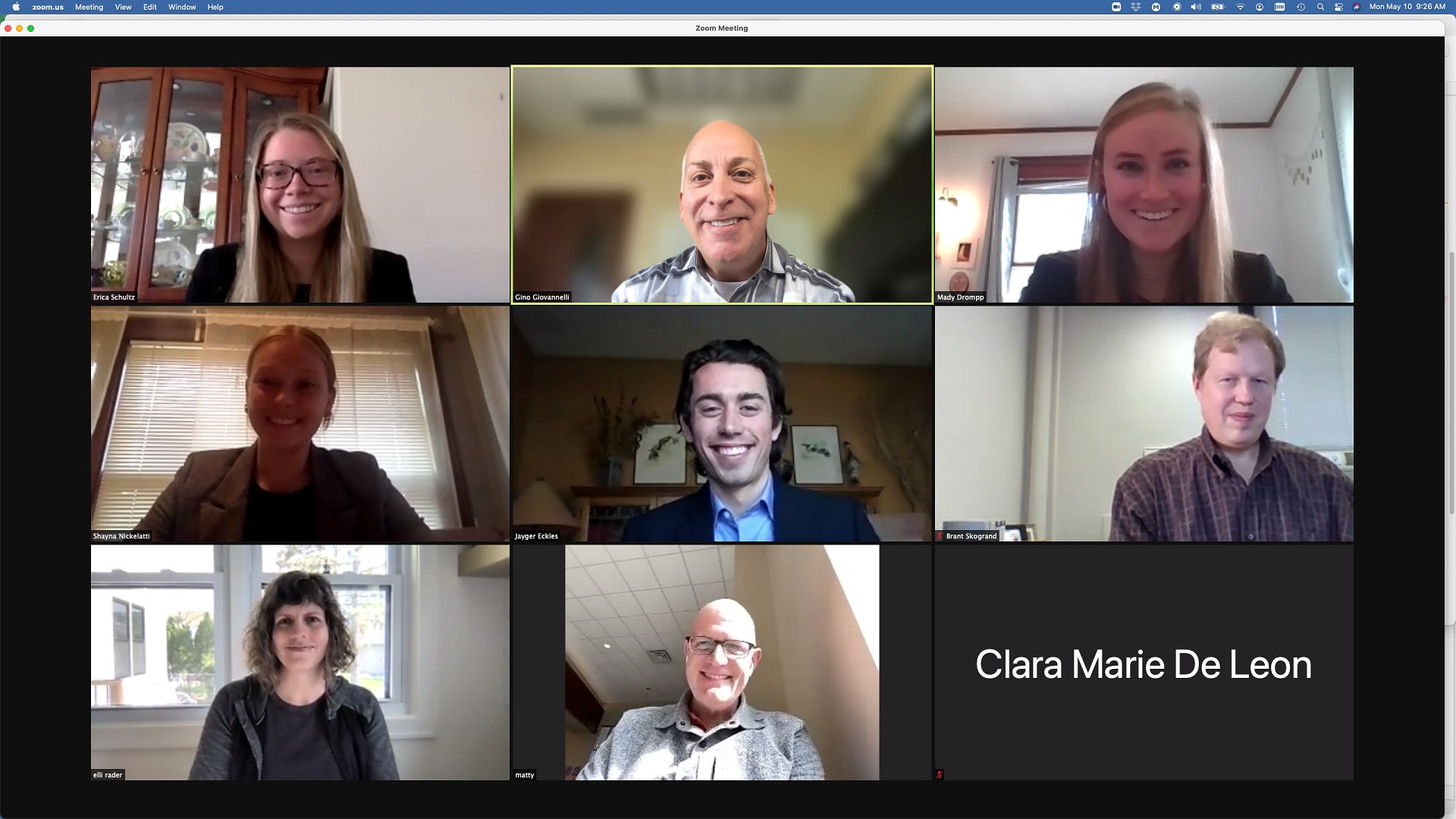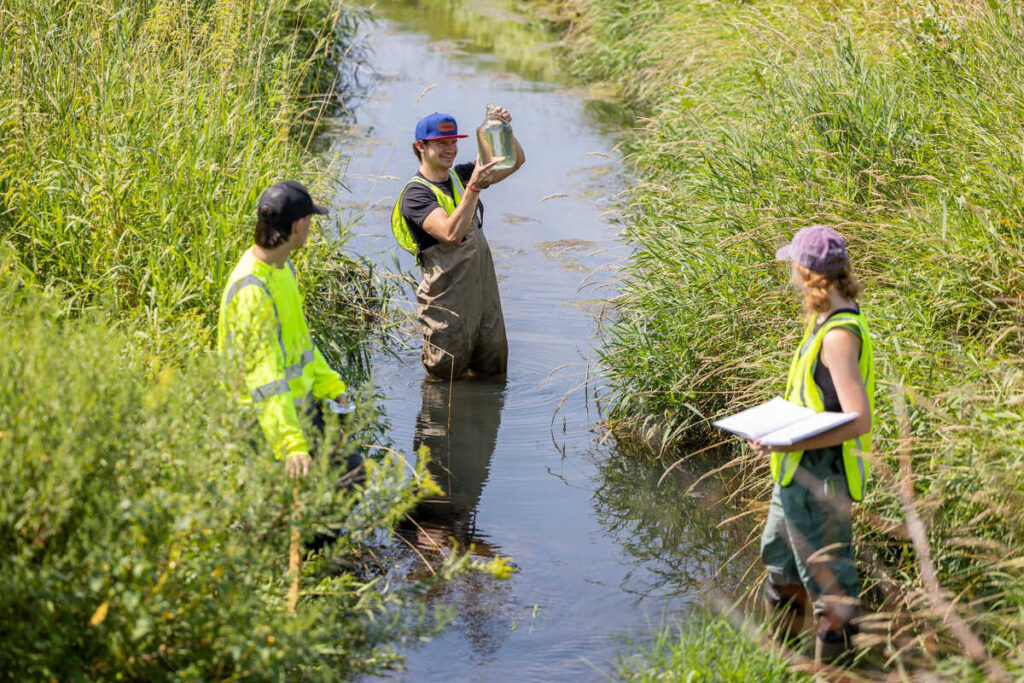Nic Zabel ’21 and Erica Schultz ’21 just graduated into an economy where technological disruption is not the exception but the rule. A technology-focused marketing course, MKTG 430 – Marketing Management, aims to better prepare students like Zabel and Schultz for this reality via real-world experience consulting with local tech firms.
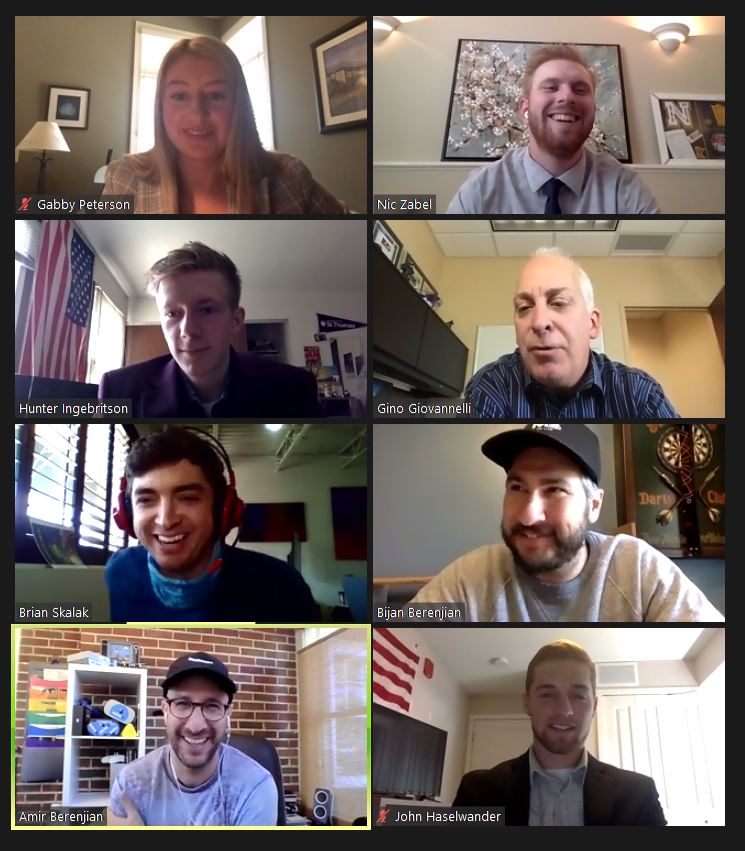
Marketing 430 students present to REM5 leadership.
The course is one example of the University of St. Thomas Business in a Digital World (BDW) initiative in action. The initiative is a holistic approach to equipping students with competencies in emerging technologies essential to all future professionals. For marketing majors like Zabel and Schultz, this learning came in the form of a semester-long capstone project pairing teams with local tech entrepreneurs. Zabel and his team consulted with REM5, a Minneapolis-based virtual reality lab and event space. Shultz and her team focused on ReMember, a first-of-its-kind restaurant loyalty mobile app platform designed by Matty O’Reilly ’19 MBA, a 28-year veteran of the restaurant and hospitality industry.
Marketing Professor Gino Giovannelli teaches the capstone course. Being an engineer by training and having founded his own digital marketing consulting firm, Giovannelli is uniquely qualified to guide students through this hands-on experience. For Giovannelli, there is no magic involved in the emerging tech space. “It’s about recognizing that while the technologies may be new, the key is to not be intimidated by the unknown. And it is important for students to really dig in and understand the business first and the technology second, and to not cut corners in the process of understanding the business,” Giovannelli said. “These students couldn’t cut corners because the products were foreign to them.”
Lisa Abendroth, director of the Business in a Digital World initiative, explained that the students are responsible for knowing the bounds of their technological competency. The impetus is on the university to provide a psychological environment where students feel safe enough to admit what they don't know. “[As a student] I have to have the humility to say, ‘I don’t know some of this stuff and now I need a safe space to be able to explore it.’ We provide students with that psychological safety,” Abendroth said.
The class had a significant impact on the students and business owners alike. Over the course of the semester, the students developed a comprehensive marketing strategy for their business partners and presented it via Zoom. For some, it was their first experience serving as consultants. “This is the first time I've ever collaborated with a company. I felt like I was making a difference and getting real-life working experience as a professional,” Zabel said.
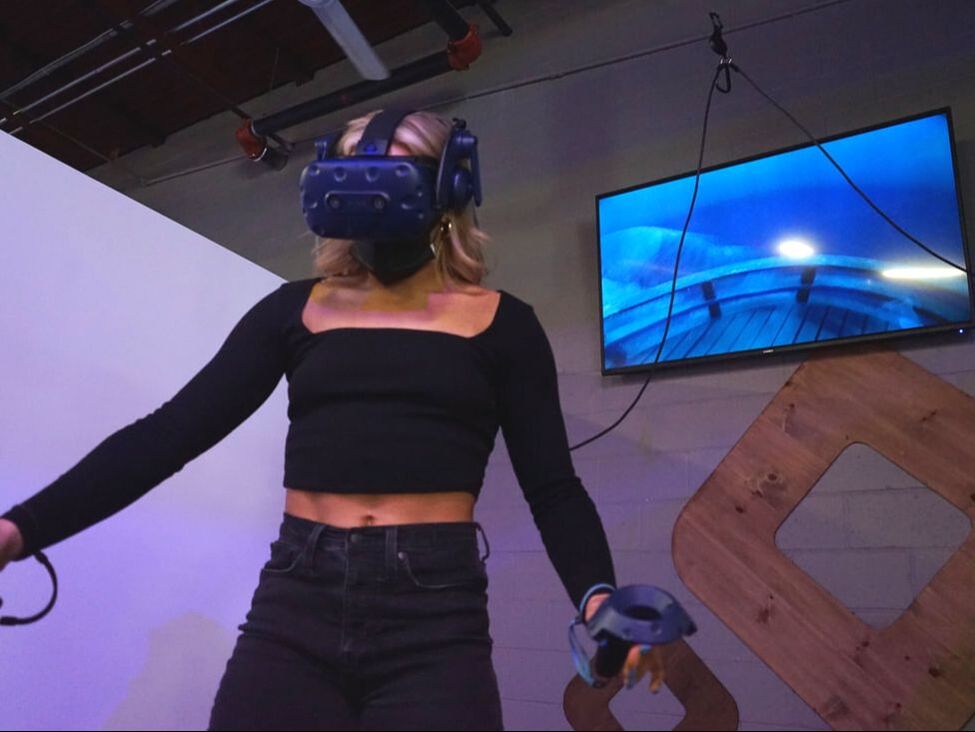
A person tries out the REM5 virtual reality lab. (Photo courtesy of REM5)
REM5 co-founder Amir Berenjian was impressed with both students and the work they produced. "We had an extremely productive and mutually beneficial engagement with the St. Thomas students,” said Berenjian. “For us, it was a great way to get raw insight and perspective from the demographic that is on the doorstep of driving digital innovation for decades to come. For the students, it was valuable exposure to disruptive technologies like VR and AR and also an exciting look behind the curtain of entrepreneurship and start-ups. Programs like this really help bridge the gap between textbooks and the real world, so kudos to St. Thomas and the students for driving this initiative forward."
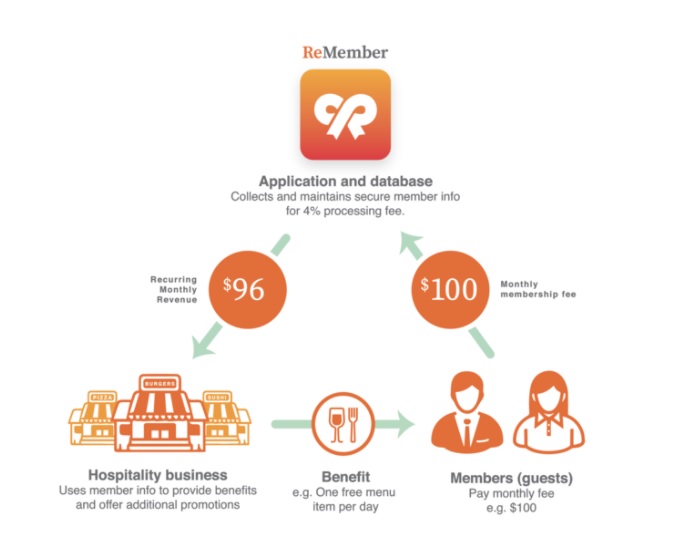
A diagram of how the ReMember restaurant loyalty mobile app platform works. (Image courtesy of ReMember)
O’Reilly was equally impressed by the students and their presentation for ReMember. He came away from the experience with some key considerations about prioritizing the onboarding of restaurants over end users. “Very thorough and really well done … Awesome job all around,” said O’Reilly.
As important as it was for the students to immerse themselves in their chosen technology, Giovannelli explained that whether the product is tech-based or not, the success or failure of the effort will come down to relationships. “It’s about an ability to work effectively in teams with a client … Once you get past [the technology], it’s just marketing, and it’s just working with people,” said Giovannelli.
Giovannelli is passionate about preparing his students for the reality of their world after graduation. “It’s like the dress rehearsal to the big show. This time it’s for a grade, soon it’s for real,” he said. But he is confident that his students will be successful because he sees in them a drive and a hunger to learn and grow. “This generation is the generation that just figures it out. They don’t need to be told how to do it. They just need to be told to do it, and they go out and get it done.”
